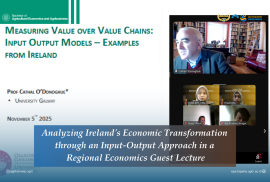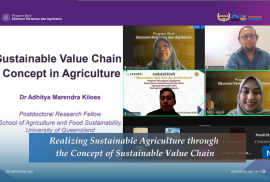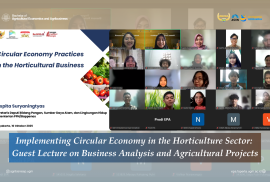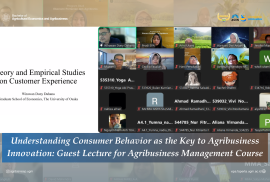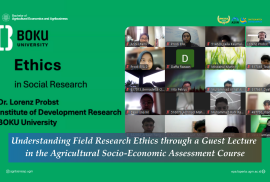Yogyakarta, November 28, 2025 — The Agricultural Economics and Agribusiness Study Program at Universitas Gadjah Mada held a guest lecture for the Agricultural Politics course, featuring Prof. Akira Ishida from Kobe University, Japan. The guest lecture was themed “Food and Nutrition Security.”
The guest lecture delivered by Prof. Akira Ishida discussed the relationship between poverty, inequality, Hunger, and food policy in developing countries. He explained that food insecurity is not only caused by limited production but also by unequal access to resources, education, and economic opportunities. Using a microeconomic approach, Prof. Ishida showed how household socioeconomic conditions affect consumption patterns, nutrition, and well-being.




